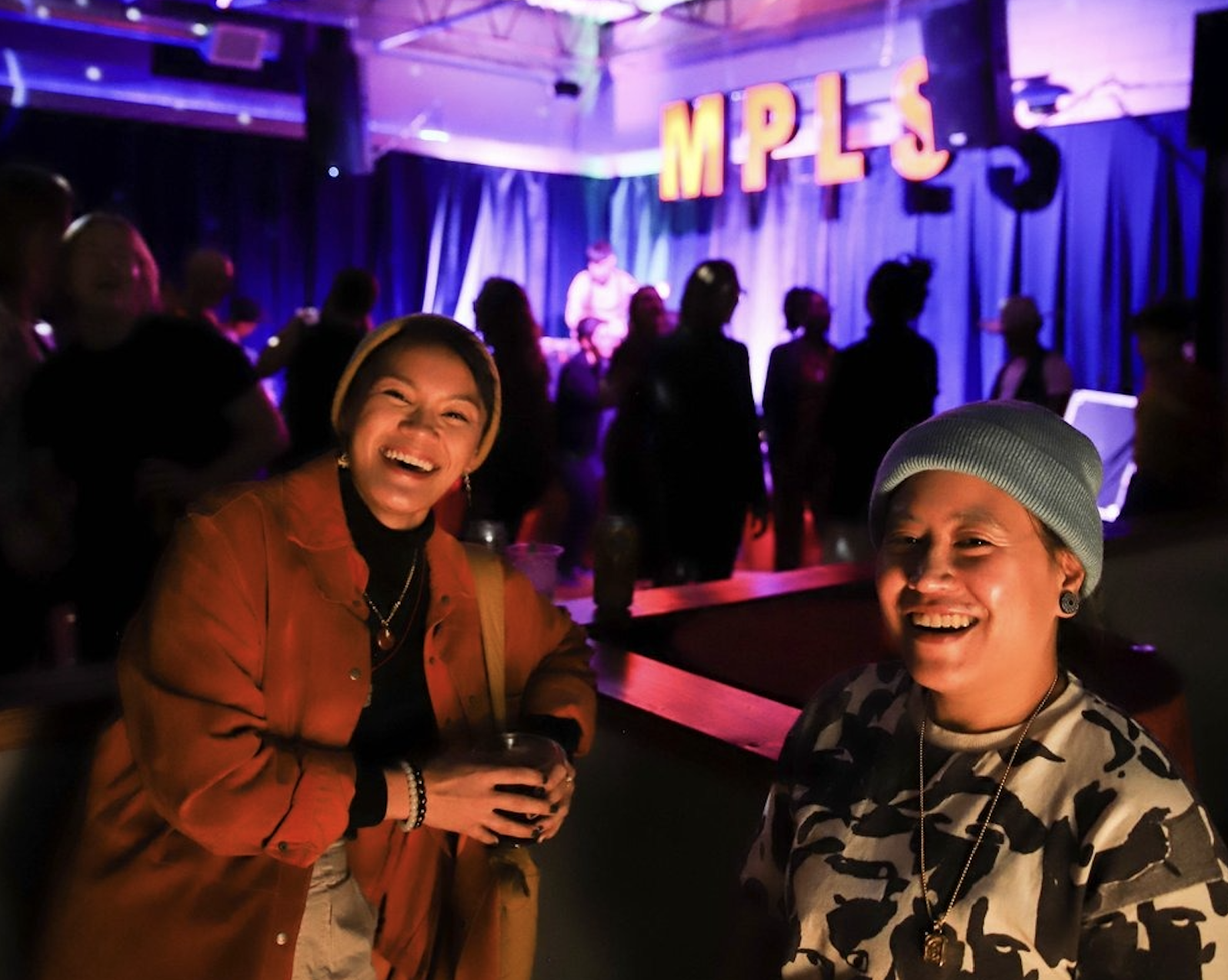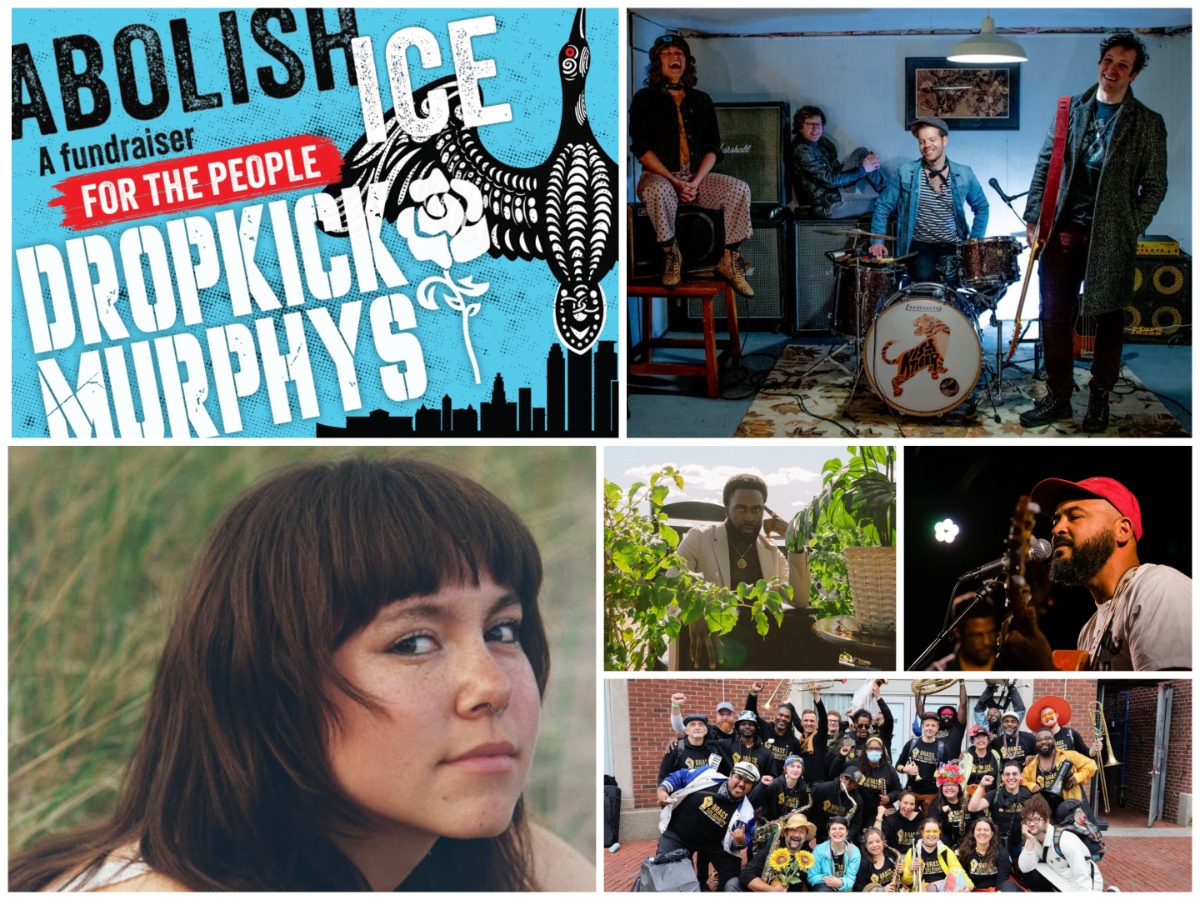In the Twin Cities and around the country, gay bars are dying.
But—and hear us out here—maybe that’s not entirely a bad thing?
In his new book Long Live Queer Nightlife: How the Closing of Gay Bars Sparked a Revolution, sociologist Amin Ghaziani argues that the decline of the gay bar has been the start of a renaissance, ushering in an era of pop-up parties and dance nights that offer an experience that’s more progressive, more inclusive, and more interesting than the brick-and-mortar bars that predated them. Greggor Mattson, in his 2023 book Who Needs Gay Bars?, makes a similar case, asking for whom these bars exist and exploring whether they’re actually disappearing so much as evolving.
In many communities, and the Twin Cities is certainly one of them, you can get a sense for what that evolution looks like. Minneapolis and St. Paul are home to an ever-changing underground network of queer culture and events; ad hoc dance parties and alternative club nights like The Klituation, GRRRL Scout, Daddy Issues, and Cyber City Disco are as reliably fun and, in many circles, as popular as the cities’ gay bars. You might not have a gay bar on your street, but follow a few Instagram accounts, and you’ll soon see that queer nightlife is alive and well, bringing sellout crowds to makeshift spaces.
The gay bar has never been just a bar—it’s a place to find community, solidarity, safety. Sporadic pop-ups and roving dance nights provide many of the same things. But can a loose alliance of glitter and liquor and leather really replace what those physical buildings mean for the community?
To find out, we talked to the DJs and organizers behind a half-dozen local LGBTQ+ pop-ups and events to learn what’s working, what’s missing, and what’s next for queer nightlife in the Twin Cities.
For Tyler Copeland of the queer dance night Daddy Issues, it had something to do with the music.
“We’re very music-driven at Daddy Issues, and we just don’t hear the music that we want to hear—the vibes from the East Coast, L.A., overseas, Europe, Germany, all those places—we just don’t hear it in town,” says Copeland, who DJs under the name Pour Hommes.
But even more so than the soundtrack, Copeland says, there was a sense of wanting something different.
“If you go to the current establishments, you see a sea of sameness,” he says. “And if you go to parties, dance nights, in New York, or L.A. … it’s diverse. You’re seeing different body shapes; you’re seeing queer, trans; you’re seeing all of the spectrum together, and that is the magic.”
Daddy Issues, which will turn two this August, was created in part to spark a little of that magic. Just about every organizer we spoke to for this story echoed that feeling that something was lacking locally, that there wasn’t a queer space doing quite what they wanted to see.
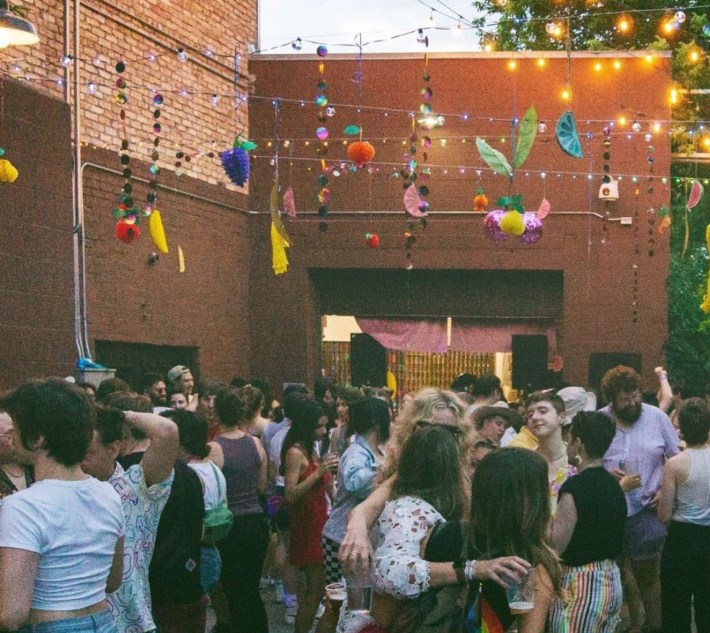
Hot Fruit, an al fresco day disco for folks who also want to be in bed by 10 p.m., debuted during Pride in 2023. Founder Nic Vetter jokes that despite being a 37-year-old “normie” with two kids, “I still want to let loose and shake my tits, sometimes!”
For Gigi Berry, a.k.a. DJ OMGIGI, whose roving parties for the “girls, gays, and theys” have included Disconcé and Material Gworl, part of the fun is putting on events that are 18+, where younger people can turn up and dance the night away.
“I remember being 18, 20, and not really having anywhere to go,” says Berry, who’s an occasional Racket contributor. “The people at my parties are around that age, and they’re amazing kids, and so talented… it’s so cool.”
And then there’s Vogue Down Mpls, which has been bringing ballroom—the Black- and Latino-led tradition of drag and dance—to a new generation of Twin Citians since 2022.
“We started out of a necessity of us wanting to find a place that was Black and queer and safe—let’s just start there,” says founding member Donald Thompson. “Because if you go to any bars that say that they’re queer here in Minneapolis, you don’t really see us there unless we’re entertainment. We can’t just go and relax and feel involved in the space unless we’re literally entertaining the crowd.”
For these groups and DJs, the lack of a permanent space isn’t a hindrance so much as a feature; a change in scenery can be part of the experience.
Vogue Down has hosted its Kiki Zone events at spaces from the LGBTQ+ bar/theater LUSH to the Walker Art Center. You'll find Berry's events at venues from the Fine Line to the Entry to the Turf Club, where she'll be for this weekend's Yeehawoncé dance party. Daddy Issues regularly takes over the basement at Beast Barbecue, which has become an unlikely house music hub in the Twin Cities. “I always laugh at myself when I’m like, ‘Yeah, it’s in the basement of a barbecue joint,’ but at the same time… yeah! It’s in the basement of a barbecue joint,” chuckles Copeland.
And there’s something sort of fun and subversive in bringing hundreds of queers to a space that might, generally speaking, be a whole lot straighter. Hot Fruit’s daytime dance parties take over the patio at Indeed Brewing, where Vetter’s wife is the COO.
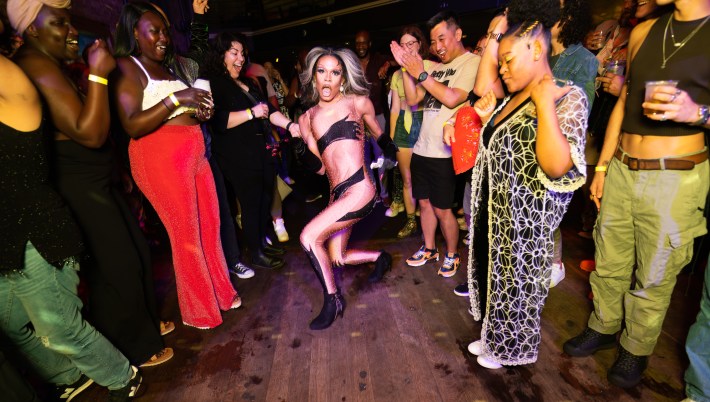
“Obviously, this is at a brewery, and that is a very typically white, male, cishet dominated space,” Vetter says. “I think it’s kind of disrupting that, the idea that breweries exist only for that set of people.”
Vetter adds that pop-ups can give access to organizers, DJs, and performers “who might not know the right people in the industry, or who just to throw the kind of event they want without the limitations and sometimes gatekeeping of a venue or promoter.” That’s especially true for organizers of color or those who are trans. “Overall though, if anyone knows how to curate an experience and circumvent the rules, it's the queers,” Vetter says.
And when it comes to curating an experience, everyone does something a little different.
Dykes 2 Watch Out 4’s latest events include a gay grill and chill and DIESEL DŸKES, an afternoon of wrestling, bikes, and tailgating in the empty lot at Moon Palace Books; Flip Phone hosts glittery rooftop drag brunches and dance parties; Minneapolis Queer Mud Wrestling organizes—you guessed it!—an annual queer mud wrestling tournament.
Many of these types of events, particularly the muddy ones, wouldn’t even be practical in more traditional spaces. The community feels collaborative, and the organizers of various events often cross-promote one another. It’s not a competition but a celebration.
“Everybody puts a different spin on it, you know? And that’s great, that’s why we all succeed,” Copeland says. “If you’re in another city [it can be like], ‘Fuck you,’ but here in Minnesota, we look out for each other. We have to collectively look out for each other to be a united front.”
The members of GRRRL SCOUT, a queer- and trans-run dance party that got its start back in 2013, note that there’s always been an ebb and flow to queer nightlife. While the Twin Cities has been home to all kinds of wonderful and successful queer-focused dance nights over the years—Twilight, Soul Friday, Grown and Sexy, Boobytrap—many of those events happen inconsistently or have since ended altogether.
“We wanted to create something more consistent with a slightly different feel,” GRRRL Scout organizers say, responding jointly by email. For the last 10+ years, their parties have come to venues as varied as The Hook & Ladder Theater and Lounge, The Fillmore, Icehouse, and Cabooze.
There are a lot of advantages to operating in that nomadic fashion, and GRRRL Scout has outlived some of the bars that used to host it, including Part Wolf. Still, “Most folks would agree that they would love to see more consistent spaces designated for our community,” its organizers say.
Silver linings aside, of course there are reasons to grieve the decline of the gay bar. As John Paul Brammer writes for the New York Times in his review of Long Live Queer Nightlife, “Despite the gay bar’s shortcomings, I can’t help aligning with the mourners here.”
For all the fun and unpredictable energy of a pop-up, there’s something to be said for having that physical space, a reliable place to plop down at the bar with friends after a long day—places like The 19 Bar in Loring Park, which, universe willing, will reopen after the freak fire that closed it earlier this year.
In some ways, the Twin Cities has been comparatively lucky. When Town House, the oldest gay bar in St. Paul, closed in 2018, it quickly reopened as The Black Hart of St. Paul, the gayest damn soccer bar there’s ever been. Two of Minneapolis’s recently shuttered gay bars, LUSH and Jetset, later reopened within a few months of each other, and staples like The Saloon and Gay 90s are still going strong.
Still, when you can rattle off the list of gay bars in town in a single breath, it doesn’t feel great. The bars that do exist still tend to attract and center white men. There are no lesbian bars in the state of Minnesota. Pop-ups can create a space that’s diverse, at least on a sporadic basis—but what would it look like to have a place like that where you could go whenever you wanted or needed, not just one Friday a month?
The Brass Strap, which is currently operating on a pop-up basis, is one group that wants to find out. As Brass Strap organizer Maddy Flisk put it in a 2022 conversation with Racket, "There's nowhere that, like—we’re service industry people. On a Tuesday night, there’s nowhere to go and be around our people."
When The Brass Strap opens a permanent location, it will be the only cooperatively owned lesbian/queer bar in the Twin Cities.
“I would say there is kind of a resurgence like more queer people are like, ‘I want this physical space,’” Flisk says. “It’s a space you opt in to, and you’re respected in a way that people outside of the community don’t really understand.”
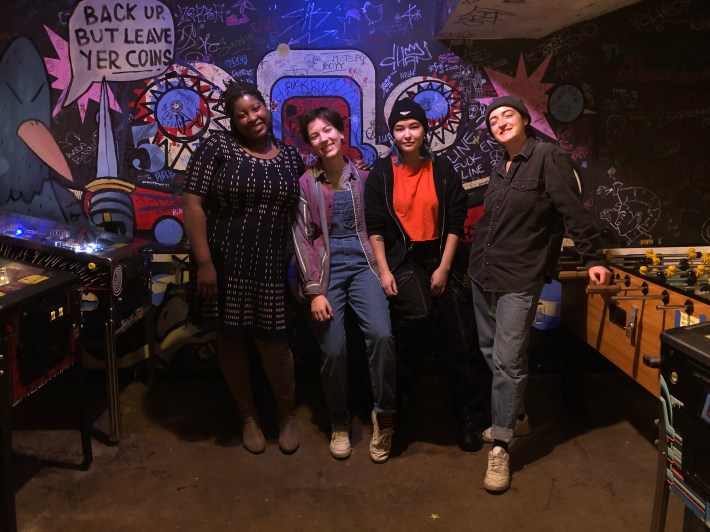
JayCee Cooper, the DJ behind the monthly events Cyber City Disco and Jumpsuit at Beast Barbecue and Black Hart, would also like to see a more robust club culture.
“We don’t have very many clubs specifically dedicated to dance music, and definitely no after-hours spots,” she says. “We make do with what we have—doing events in barbecue restaurants, and events in the queer spaces that we do have, like The Saloon and Black Hart and the Eagle.”
Cooper adds that she’s been lucky to find stability with Black Hart and Beast, but connecting with venues (and venue owners) that understand what you’re going for, or want to take a chance on something new, can also be a struggle.
“As a trans DJ, there’s not a lot of us, and there’s a lot of space for cis people, and hetero people,” she says. “It’s just important to have those spaces and to feel accepted and to be able to express ourselves, musically and with our communities.”
GRRRL Scout organizers say finding the right venue can be “a bit tougher than it seems,” and while they’ve had a few longstanding relationships with various spaces, they like creating a new experience for the folks who attend their events. There’s no single, monolithic “queer community,” and so GRRRL Scout doesn’t try to be one-size-fits-all; upcoming happenings include Mature Content, a 30+ Pride Party, a stoplight party at the Fillmore, and Crop Top, a daytime rooftop party at On the Rox.
As for whether they’d ever open a physical bar?
“We definitely have considered settling down in a brick-and-mortar location, but we do feel that might take away from some of our creative concepting,” organizers say. “But we’ll see… who knows where this will take us.”
There are challenges specific to operating a dance night on a pop-up basis, too. It’s hard work for the organizers. “Literally, before I got on the phone with you, I was sorting tinsel and party decor and ordering balloons,” Copeland of Daddy Issues laughs. “I call it my second full-time job.”
The freedom that comes with operating on a roving basis can be a double-edged sword; you’re able to keep it fresh and interesting, but you also have to keep it fresh and interesting. Nearly all of the events highlighted here have been around for only a few years; the pop-up lifespan doesn’t tend to be long.
The good news is that new nights are emerging all the time, and if you’re reading this, you have access to more boutique, niche queer nightlife than there’s been at almost any other time in Twin Cities history. Cooper posits that it’s a result of the ramping-up of anti-queer and anti-trans political rhetoric—the community is coming together in a way that feels somewhat unprecedented.
“I’m really excited to see where we’re going as a scene,” she says. “I feel like for a long time, things were very siloed, and now you’re seeing so many different projects and so many different ideas matriculating.”
“Folks are trying to find ways to be together again,” Cooper adds, “and finding ways to take care of themselves in the form of community and dance.”
